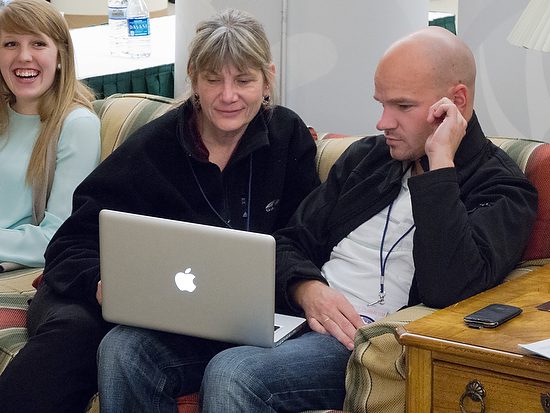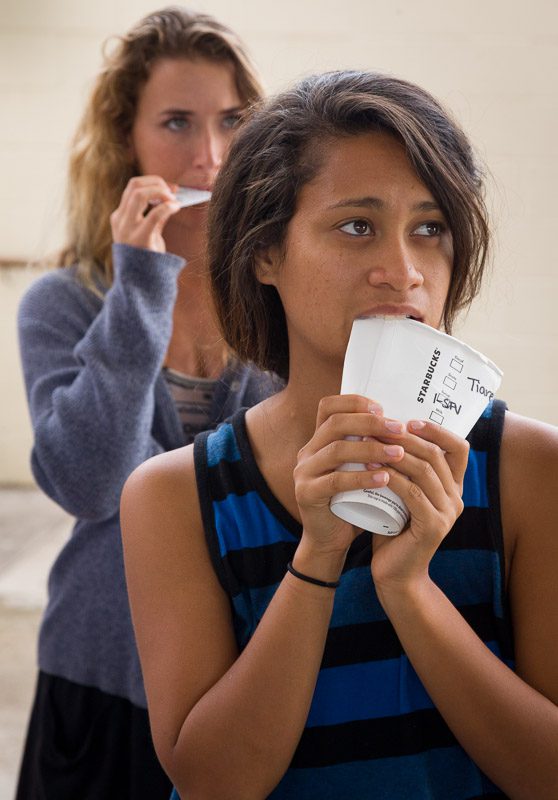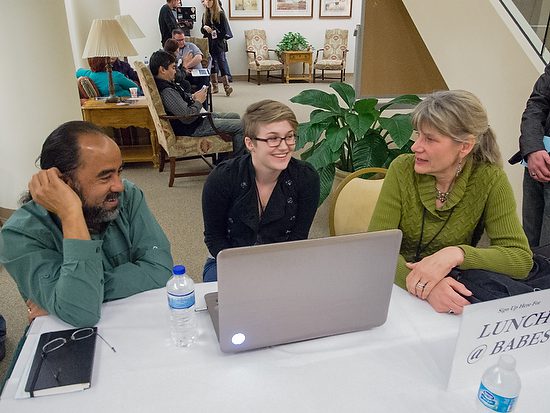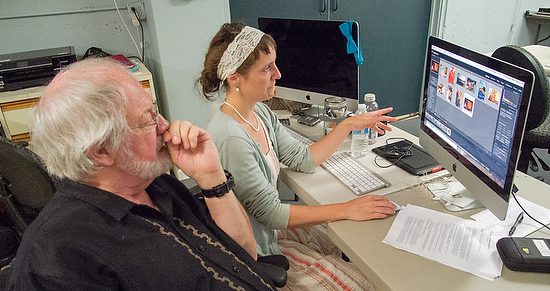Bill Bangham gives one-on-one reviews to the students in School of Photography at the University of Nations located in Kona, Hawaii. [Nikon Coolpix P7000]
How would you like for me to go over your work with you and give you some feedback?
Professional photographers seek out portfolio reviews to learn what they can do better and also to hopefully get work.

Getting your photos reviewed is probably one of the best ways to learn and grow.

Having your work reviewed can be a real nail biter for sure. While I was teaching in Kona, Hawaii Dennis Fahringer took this photo of the students listening to me.
Each one of the students would be talking to me later about how difficult the assignments were, but now on the other side of them are grateful for the assignment.
Stanley’s Tips for a Portfolio Review
Let your work speak for itself. Please don’t tell people all about the photos, if the photo doesn’t do a good job of that on it’s own then maybe it shouldn’t be in the portfolio. If the person looking at the photos wants to know more they will ask.
Listen for what is not said as much as what is said. Often when reviewing a new photographer’s work I am looking desperately for something good in the midst of snapshots. I want to encourage you, but I don’t want you to think everything is great either. If I don’t say anything about a photo, believe me it is because I am not impressed. If you ask me I might try to find something good to say, however, if you are fishing for compliments your work isn’t that good.
Portfolio review isn’t about praise of your work. If your work is the greatest of all time then maybe you will get a WOW and I wish I had your portfolio comment. You should be looking for pointers on what to do next time to make the photo better.
Millimeters are critical for great photos. One example of how a millimeter can make or break a photo is just the difference in the camera’s point of view and the subject’s eyes. Just tad bit high and you look down at the subject. Eye level with the subject is something quite different than just a little lower and looking up. As you get better this is what you are looking for the little things to improve your work.
There are stages of growth in photography. Early in your career you may need some really basic tips to help improve your photography. At this point someone talking to you about a millimeter of difference will not help you. You have a lot of work to do before they can talk to you about those differences.
Establish a relationship if possible. You need to pick people to review your work that you can go back to later and show them again. They will be able to then see your growth and frankly if you paid attention.
Ask always if you can follow up and how. Plan to go out and shoot as soon as you can after your review. Work on the tips they pointed out to you and then somehow get them to see your revisions in that portfolio. You might just need to show them one project you are working on and get their feedback.
You never arrive at the top. There is always room for growth. Always seek out feedback on your work for the rest of your career. If you are not growing then you are dying.

If you want me to review your work we can do this a few ways. We can meet in person and I look over your work or we can do it by Skype or by phone. I just need you to share a link of photos with me if we are not in person.
Just contact me. Cost is $125 an hour. Maybe you want to get a friend to do it with you and split the cost. That is fine with me as well.

